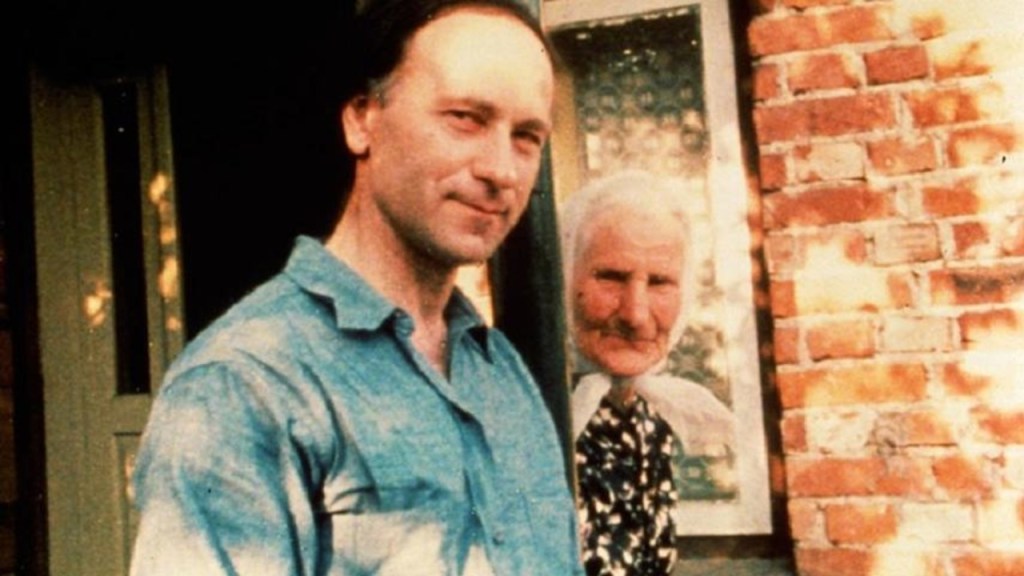
#486) Reminiscences of a Journey to Lithuania (1972)
Directed by Jonas Mekas
Class of 2006
The Plot: Lithuanian filmmaker Jonas Mekas chronicles his return to his home country over 25 years after emigrating to America. Mekas and his brother return to the village of Semeniškiai and reunite with their mother and extended family, which Mekas turns into a sort of film collage of 100 images. As Mekas continues to rediscover his homeland, he starts to open up about what WWII did to him and his family, and why he left Lithuania.
Why It Matters: The NFR calls the movie “an elegiac diary film” and praises Mekas and his “exceptional body of avant-garde films”.
But Does It Really?: If this blog has taught me anything, it’s to appreciate not only the undervalued work of underground filmmakers, but also their stories that have an overarching influence on their work. Jonas Mekas is one such filmmaker, and his childhood in Lithuania is one such story. Jonas Mekas is deserving of film preservation not only for such work as “Lithuania”, but also for his lifelong devotion to promoting avant-garde filmmaking. No argument here for the NFR preservation of Jonas Mekas.
Everybody Gets One: As mentioned in the film, Jonas Mekas and his brother Adolfas were escaping their home country of Lithuania during WWII when their train was stopped in Germany, and the two were sent to a labor camp in Elmshorn. After they escaped, the two hid in Denmark before emigrating to America in 1949. While living in Williamsburg, Brooklyn, Jonas bought his first camera. In addition to making his own films, Jonas Mekas was known for curating avant-garde films, as well as advocating them in his columns for “Film Culture” and “The Village Voice”. All of these efforts earned Mekas the nickname “The Godfather of American experimental cinema”.
Wow, That’s Dated: Mainly the idea of anyone taking extensive footage at a family gathering and turning it into a documentary. At best, a modern remake would be a story on Instagram. Maybe a YouTube montage set to royalty-free music.
Seriously, Oscars?: Like many a renowned avant-garde filmmaker, Jonas Mekas received zero Oscar attention for his films. For the record: 1972’s Best Documentary winner was a movie about ’70s evangelical preacher Marjoe Gortner. Wow, that’s dated.
Other notes
- The film is divided into three parts, though Parts One and Three serve more as prologue and epilogue respectively. Part One is comprised mainly of footage from Mekas’ previous films, and his life in Williamsburg after the war.
- I’m sure this was intentional, but all of the footage in part one is in black and white. When we move on to Part Two, all of the footage in Lithuania is in color, making for a nice “Wizard of Oz“-esque reveal. The shift also highlights the natural beauty of Lithuania and its expansive fields.
- Although the footage is silent, there was obviously some audio recordings done at the same time, with various family members providing commentary as well. Most notable of these audio recordings is all the singing that Jonas and his family do together. As Jonas says later in the film “When more than one Lithuanian get together, they sing.”
- Jonas chooses not to make mention of his time imprisoned in a Nazi labor camp until about halfway through the film. It completely changed my entire viewing perspective. What started as a family reunion became a movie about a man finally able to revisit his formative years without the painful trauma of the war. It’s a credit to Mekas’ talent with structure. This isn’t just a series of vignettes strung together, there’s an emotional story at this film’s core.
- This movie has something you don’t see all the time: a scythe being used as an actual agricultural tool rather than just something being held by the Grim Reaper.
- Jonas’ cousin is a computer engineer. This is 1971, that’s super fancy!
- As previously mentioned, Part Three is an epilogue of sorts in which Jonas and his family visit extended family in Vienna. The final shot is Jonas departing Vienna as a large fire ravishes part of the city. It is theorized that the government has intentionally burned the building in an effort to modernize. Yeah, we had something like that happen in the Mission District a few years back.
Legacy
- Jonas Mekas continued making films well into the early 2010s, in addition to teaching film for NYU and other schools. Highlights of his later film career include 2000’s “As I Was Moving Ahead Occasionally I Saw Brief Glimpses of Beauty”. Jonas Mekas died in 2019 at age 96.

4 thoughts on “#486) Reminiscences of a Journey to Lithuania (1972)”